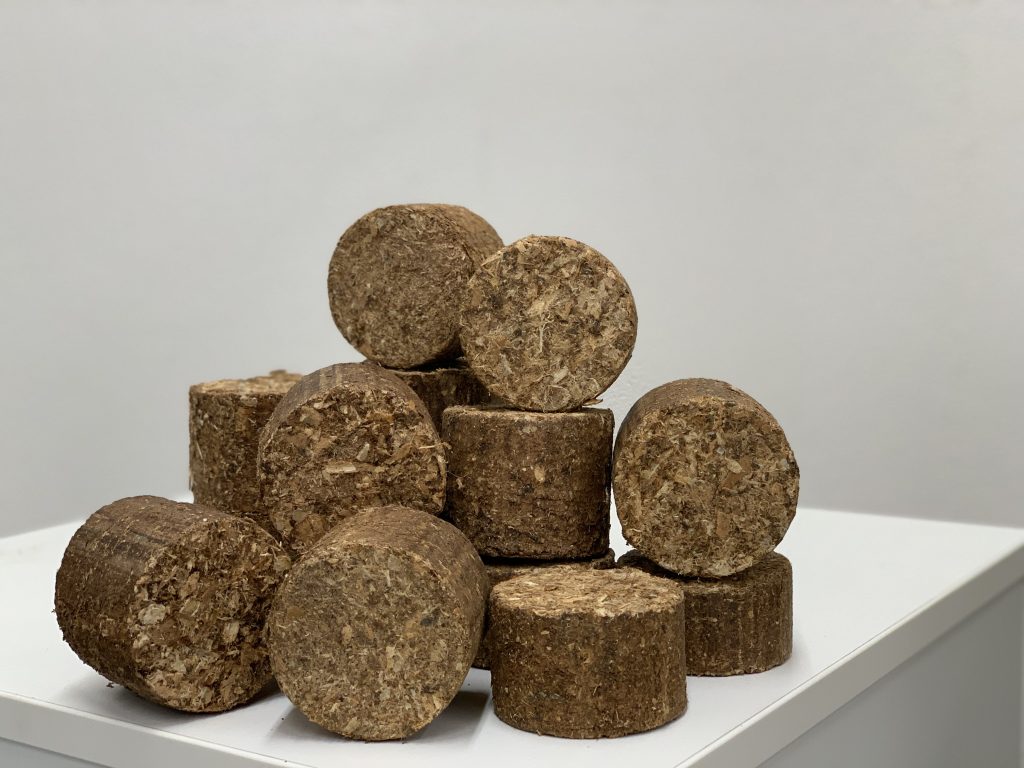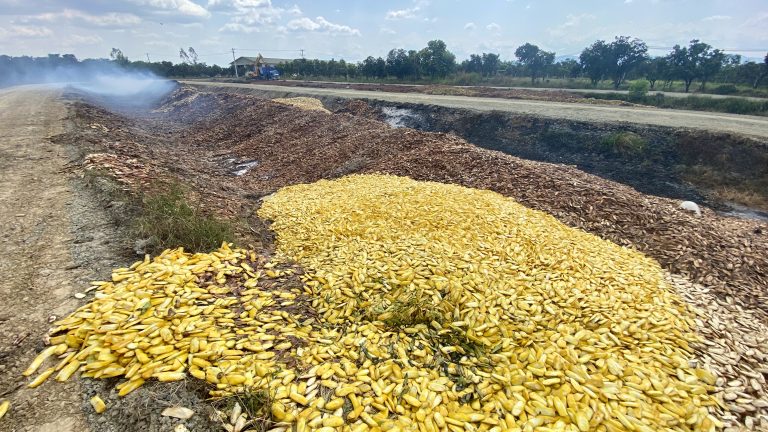Mango seeds have significant potential for the production of energy, valuable feed and fodder. Credit: MENDELU.
Brno, 15 Nov (BD) – Experts from the Mendel University Faculty of Forestry and Woodwork (LDF MENDELU) are helping to reuse waste from fruit processing and at the same time reduce the consumption of firewood in Cambodia. They make fuel briquettes from mango stones, which are then used as fuel for households and processing companies. This has a positive effect both on the reduction of landfill waste and on the protection of local forest stands that suffer from excessive logging.
Mango is one of the most important agricultural products in Cambodia. “Mango processing has been improving in recent years,” said Petr Němec from the Institute of Forest Botany, Dendrology and Geobiocenology of LDF MENDELU. “Previously, the vast majority of it was exported fresh to foreign countries, but a large amount of it also spoiled during seasonal overproduction. Now more and more processors are producing dried mangoes that do not spoil and can be sold even out of season. However, a new problem began to arise, when a large amount of waste accumulates during fruit processing, especially mango stones.”
The Brno scientists, in cooperation with the Biofuels Laboratory of the Faculty of Tropical Agriculture in Prague, produced fuel briquettes from mango stones, which they further analysed. The material has proven to have very useful properties, such as mechanical resistance, high calorific value, low emissions of nitrogen and carbon oxides and low ash content. Briquettes can be used as fuel in stoves and boilers used for firewood.

“On site, we cooperate with Kirirom Food Production, which produces dried mangoes,” said Němec. “In the high season, they process 200 tons of mangoes a day, of which about 60 tons of seeds go to the landfill, every day. Here, the stones rot and pollute the groundwater, or are slowly incompletely burned, which heavily pollutes the surrounding air. Paradoxically, Kirirom use firewood to heat their dryers, causing the surrounding forests to suffer.”
According to the MENDELU team, the company can produce approximately 12 tons of quality fuel from its kilns per day, thereby replacing more than 40% of its wood consumption. In addition, the cores separated from the stone can be monetized as a source of mango butter for use in food and cosmetics. Presses from the kernels after oil separation can serve as an ingredient in feed mixtures for cattle.”

Experts from the Czech Republic also helped the locals select the machinery for processing the stones. The partner company Holistic Solutions presented local businesses with machines of both Czech and foreign manufacture. “We were happy that the local partners took the results of the project as an opportunity not only to save money, but also to lean more towards sustainable farming methods and thus protect the local environment,” added Němec.
The project was financed from the Partnership for Sustainable Development Goals program between the Czech Republic and the United Nations Development Program. Its aim was to reduce waste production and at the same time use an alternative source of energy and thus help reduce deforestation, from which the country suffers greatly. Cambodia ranks among the largest producers of mangoes in the world, producing up to 4 million tons per year. The seeds, which have not been used until now, represent a significant potential for the production of energy, valuable feed and fodder.






